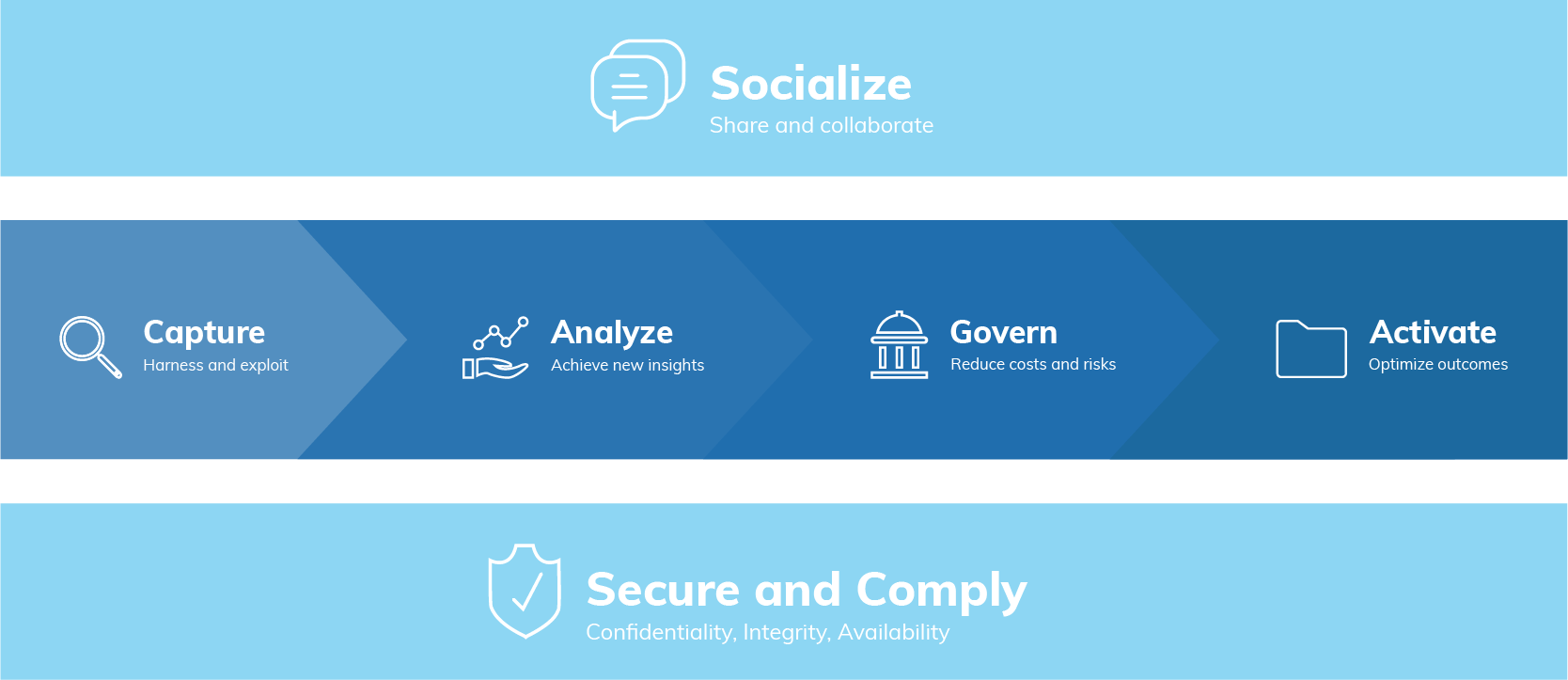ECM - Enterprise Content Management
Based on IBM FileNet, IBM Enterprise Content Management Platform is a shared foundation that delivers transactional and business content to people, processes and devices. It supports hundreds of content with industry leading security and governance capabilities and scales, to meet the demands of organizations from any department to an entire enterprise. It also manages your content where it is created, whenever it is needed, and deploys in the cloud, on-premise, or hybrid to gain a competitive edge and maximize profits.
Here IBM Datacap also takes a very important role. Quickly and effectively, it captures content from multiple channels by automating the extraction of data from both paper and digital documents wherever and whenever it originates. With the close real-time digitization of this information, organizations can improve productivity and accelerate business processes to enable faster responses to customers, ensuring data governance.
BPM – Business Process Management
With IBM Case Foundation used for document centric workflows or with IBM BPM for business process workflows, organizations are able to discover, document, automate, and continuously improve business processes to increase efficiency and reduce costs.
Middleware
Due to the continuous growth of applications used by organizations internally and to connect with the rest of the world, middleware technologies are increasingly significant, especially to data governance. Companies and organizations are now building enterprise wide information systems by integrating previously independent applications with new software developments. The integration process may involve legacy applications, which may be used only with or through a non-modifiable interface, and this is where Middleware systems can help. The objective of Middleware systems is to mediate and orchestrate that internal or external interaction between applications. Therefore, a Middleware system should be robust and flexible, and should provide connectivity and universal data transformation in heterogeneous IT environments.
To address this area, PDMFC has competences in ORACLE and IBM platforms. PDMFC is able to offer turnkey projects from selling the platform, install, configure to extend and maintain it.

